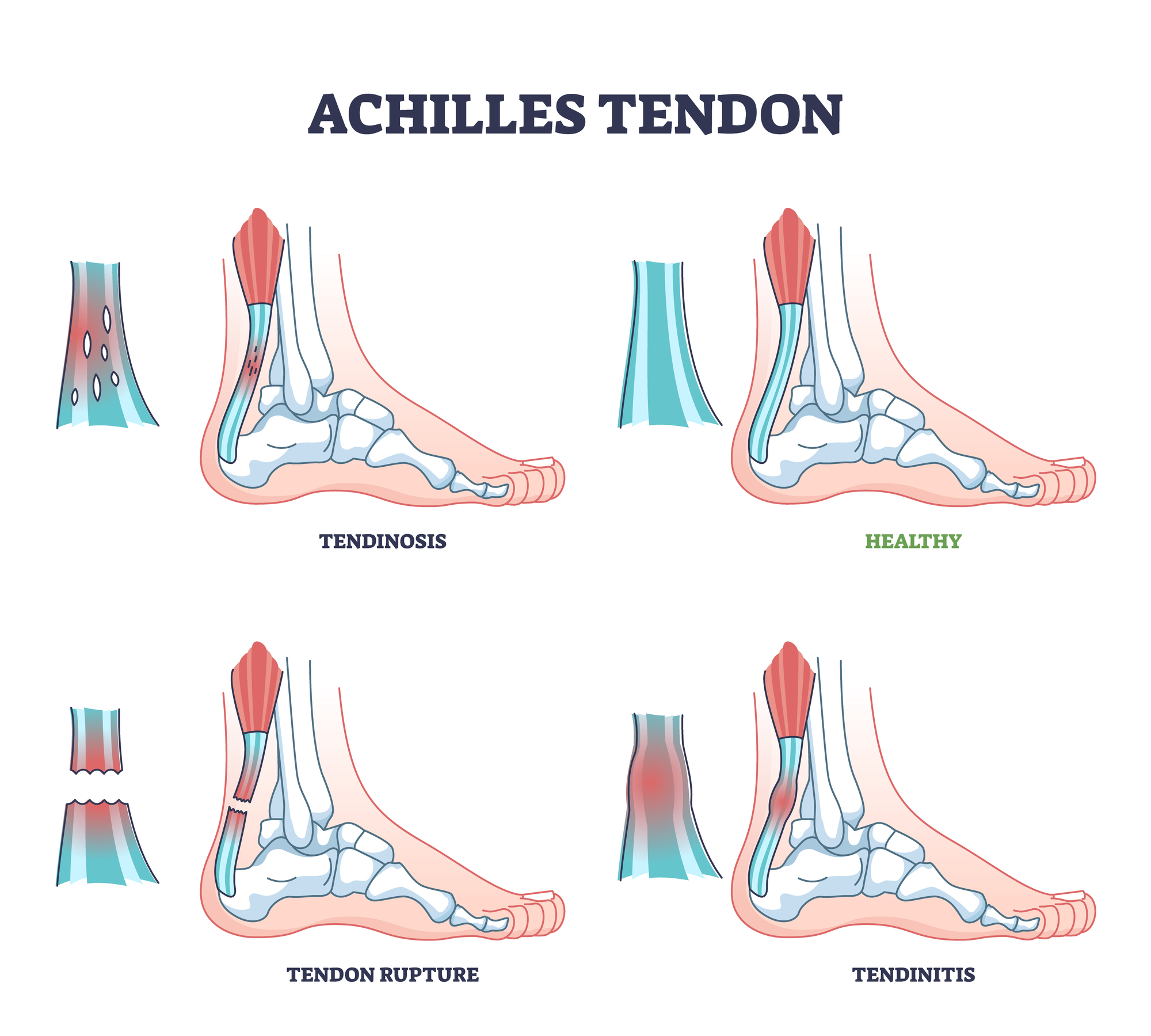Achilles Tendonitis
The condition occurs in approximately 6–18% of runners, and also is more common in athletes, especially in sports that involve jumping (e.g., basketball), and in people who do a lot of walking.
Achilles Tendonitis is Painful
What causes Achilles Tendonitis?
Achilles tendonitis is a painful and often debilitating inflammation of the Achilles tendon (heel cord). Achilles tendonitis may be caused by a single incident of overstressing the tendon, or it may result from a series of stresses that produce small tears over time (overuse). It is located in the back of the lower leg, attaches to the heel bone (calcaneus), and connects the leg muscles to the foot. The Achilles tendon gives us the ability to rise up on our toes, facilitating the act of walking, and Achilles tendonitis can make walking almost impossible. The condition occurs in approximately 6–18% of runners, and also is more common in athletes, especially in sports that involve jumping (e.g., basketball), and in people who do a lot of walking. Achilles tendonitis that occurs as a result of arthritis in the heel is more common in people who are middle-aged and older.

Poorly conditioned athletes are at the highest risk of developing Achilles tendonitis. Participating in activities that involve sudden stops and starts and repetitive jumping (e.g., basketball, tennis, dancing) increases the risk for the condition. It often develops following sudden changes in activity level, training on poor surfaces, or wearing inappropriate footwear.
The Three Stages of Achilles Tendonitis
STAGE 1:
Peritenonitis
Peritenonitis is characterized by localized pain during or following activity. As this condition progresses, pain often develops earlier on during activity, with decreased activity, or while at rest.
STAGE 2:
Tendinosis
Tendinosis is a degenerative condition that usually does not produce symptoms (i.e., is asymptomatic). It may cause swelling or a hard knot of tissue (nodule) on the back of the leg.
STAGE 3:
Peritenonitis
Peritenonitis with tendinosis results in pain and swelling with activity. As this condition progresses, partial or complete tendon rupture may occur.
Trust Experts with Your Achilles Tendonitis
3 Convenient Locations
Reisterstown
Address:
4 Glyndon Drive, Suite 2A
Reisterstown, MD 21136
Towson
Address:
7600 Osler Drive, Suite 106
Towson, MD 21204
Baltimore- Rotunda
Address:
711 W. 40th Street, Suite 351
Baltimore, MD 21211
Contact the Family Podiatry of Maryland Team
Interested in booking at one of our three convenient locations? Feel free to send us a message so we can reach out to you as soon as possible! We're here to help with all your foot and ankle needs.
